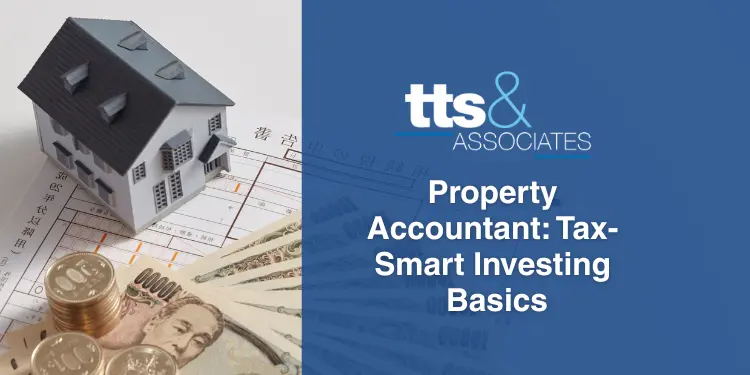Buying an investment property is only half the job. Getting the tax right—year in, year out—protects cash flow, avoids ATO headaches and improves after-tax returns. A skilled property accountant helps you set up clean records, claim the right deductions, and plan ahead for major events like renovations or a sale. This guide outlines the essentials every landlord should know before 30 June rolls around.
What a property accountant actually does
A property accountant focuses on the rules that affect residential and commercial investors. In practice, that means setting up a chart of accounts that mirrors ATO labels, designing a paper-trail for audit-proof claims, and building quarterly routines so the Business Activity Statement (BAS) (if you’re registered for GST on commercial property) or year-end return is straightforward. They also help you model cash flow and tax for scenarios—such as refinancing, adding a second property, or moving back into your former home.
Typical support includes:
- Rental income and expenses: ensuring all rent, incentives and bond adjustments are captured.
- Repairs vs improvements: coding one-off fixes to repairs (generally deductible) and larger upgrades to capital works (depreciated).
- Depreciation strategy: organising quantity surveyor reports and tracking Division 40 (plant) and Division 43 (capital works) claims.
- CGT (capital gains tax): modelling holding periods, main residence choices, and selling costs to estimate the tax on exit.
For a simple compliance rhythm, see TTS & Associates’ explainer on BAS lodgement in five steps and our quarterly BAS dates guide.
The deductions that move the dial
The ATO’s annual Rental properties guide is the anchor for most landlord claims and explains income, deductible expenses and record-keeping expectations.
Key areas your property accountant will lock down:
- Interest on investment loans: Generally deductible to the extent funds are used to produce rental income; mixed-purpose loans must be apportioned.
- Repairs and maintenance: Work that restores the property to its original condition after wear and tear is usually deductible; initial repairs (to fix defects present at purchase) are capital. The ATO guide provides examples.
- Travel to residential rentals: Since 1 July 2017, travel to inspect or maintain residential rental properties is not deductible for most individual investors (an integrity measure that still catches many)—your accountant will make sure it’s excluded. See the ATO’s rental expenses guidance.
- Depreciation and capital works: Division 43 capital works (structural elements and fixed items) are typically claimed at 2.5% p.a. over the effective life; eligible plant and equipment (Division 40) may be claimable depending on acquisition date and whether assets are new. The ATO’s Capital works deductions page explains rates and eligibility.
Your accountant will also review body corporate fees, insurance, council rates, land tax (state-based), advertising for tenants, property management and water usage to ensure the correct treatment.
Record-keeping that stands up to review
ATO data-matching on bonds, land titles and interest statements means sloppy records are risky. A property accountant will set up a simple folder per property and year:
- Income: lease, rent ledger, bank statements.
- Outgoings: rates, insurance, agent statements, repairs with invoices.
- Assets: quantity surveyor (QS) report, invoices for appliances, photos for repair vs improvement decisions.
- Loan evidence: original loan contract, redraw and refinance schedules to prove use of funds.
Keep records for at least five years from lodgement (longer for CGT cost-base items). The ATO’s rental guide details what evidence is expected and common errors (for example, claiming private use days).
When your home becomes (or was) an investment
Timing and intent matter. Move out and rent your former home and you may access the main residence absence rule (sometimes called the “6-year rule”) if you don’t elect another property as your main residence during that time. Getting the choice right can save substantial CGT. Review the ATO’s main residence guidance and examples before you decide (see Eligibility for the main residence exemption and Treating a former home as your main residence).
A property accountant can model both paths (keep vs sell, main-residence choice vs investment) including holding costs, depreciation implications and projected CGT.
Planning ahead: before the reno or the sale
Two planning conversations to schedule early:
- Renovations
Large upgrades often shift from “repair” to capital works, changing cash-flow timing of deductions. A QS schedule ordered before work starts helps separate plant from capital works so you don’t leave deductions on the table (see ATO capital works guidance). - Selling
For CGT, track cost-base elements such as stamp duty, legal fees, buyer’s agent, and non-deducted capital improvements. If you’ve held the asset more than 12 months, the 50% CGT discount for individuals may apply; your accountant will also consider main-residence periods and any partial exemptions.
Commercial property and GST
Residential rent is input-taxed (no GST on rent; generally no GST credits on associated costs). By contrast, commercial property leases are usually taxable supplies once you’re registered for GST, which introduces activity statements, tax invoices and potential going concern rules on sale. Your property accountant will set up BAS-ready bookkeeping and help you apply the correct GST treatment per lease terms and registrations. For due dates and methods, see the ATO page on BAS due dates. Australian Taxation Office
When to bring in a specialist
Consider engaging a property accountant when you:
- buy your first investment (to set foundations right),
- change use (move out/move in),
- plan a major renovation, or
- contemplate a sale or refinance.
The right advice upfront is cheaper than fixing a year’s worth of coding after year-end. For practical BAS and lodgement tips, setup a free call with TTS & Associates’ to discuss your situation.
General information only – seek professional advice before acting.




